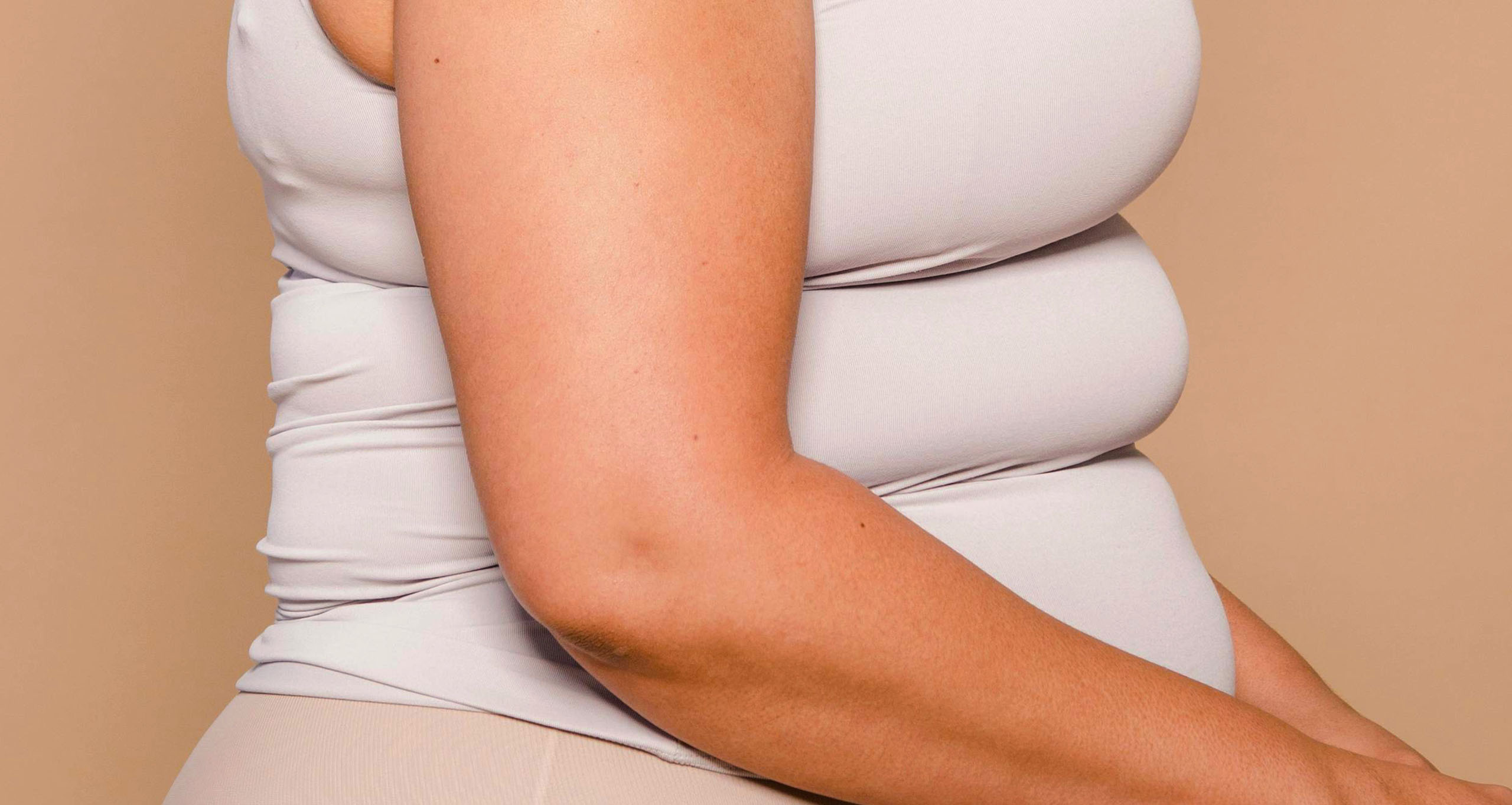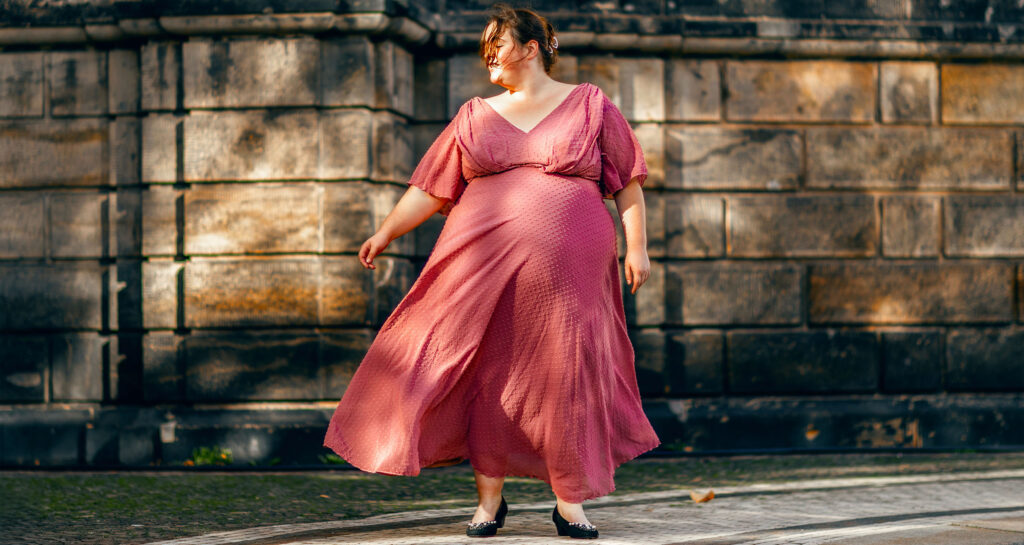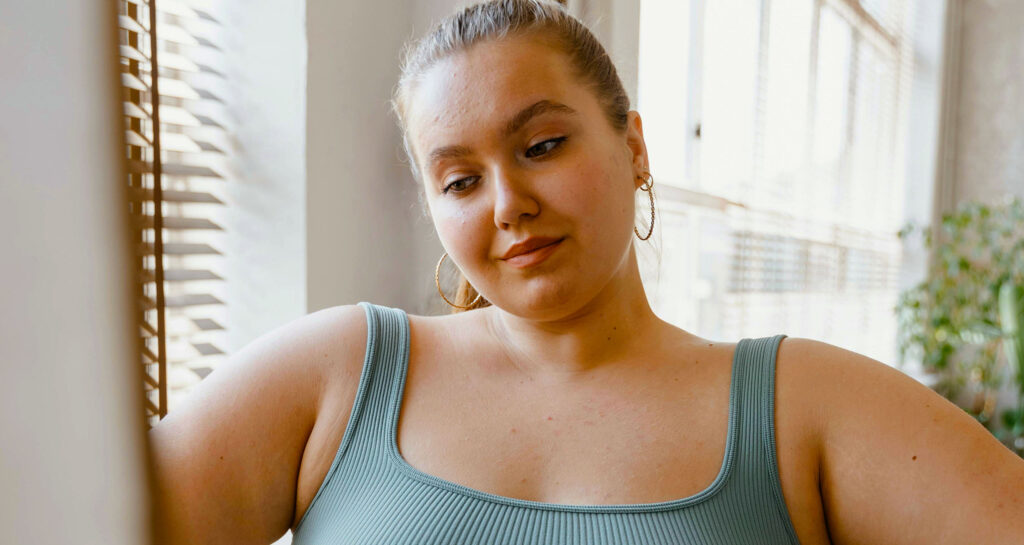Is it okay to be fat?
Published on July 28, 2025

From Hollywood’s obsession with Ozempic to the MAHA moms, being thin is back in fashion.
Even Lizzo dropped sixty pounds.
Lately, I’ve seen videos of women with full chests and curvy hips explaining that despite the resurgence of “skinny,” some people are not made to be thin. These women are undeniably attractive, but nowhere near a size 0. Neither would I say they are obese.
So, is it okay to be fat?
Disclaimer: Not medical advice.

Body positivity and pessimism
It’s not okay to be fat when body positivity becomes an excuse for poor habits. If you refuse to put in the effort to maintain a healthy weight through exercise and eating well, despite being able-bodied, you are lying to yourself and using “body positivity” as a crutch.
If you’re unfamiliar with this discussion, body positivity is a trend that encourages you to accept your body as it is and feel good in your own skin. I hope that everyone can feel this way in their lives. I think it’s a good thing.
That being said, the idea morphed quickly into fat acceptance–even obesity affirmation. Plus-sized models like Barbie Ferreria and Iskra Lawrence sold swimsuits and loungewear for Aerie REAL campaigns. Ashley Graham and Paloma Elsesser covered Vogue. Major publications started pushing the idea that obesity is beautiful.
From 2016 to 2018, the number of plus-size models over size 12 that were featured on a magazine cover had more than doubled, according to the Fashion Spot’s polls. Casting director Emma Matell told Vogue Business that there was an inclusivity boom on runways around 2019 and 2023. Market researcher NPD Group saw sales of women’s plus-size clothing (defined as size 12 or above) brought in $21.4 billion in 2016, doubling the rate of overall apparel sales, from a 2017 CBS report.
Instead of giving the public tools to achieve good health, the media and powers that be promoted complacency and negligence towards our weight.
A history of fat positivity
With the history of body positivity and fat acceptance, this shouldn’t be surprising. In the early 60s, Llewellyn “Lew” Louderback wrote an article for the Sunday Evening Post bemoaning a real problem. Louderback’s main argument: fat people were less likely to be chosen, celebrated, and successful than their thinner peers, whether it was getting a promotion at work or a college acceptance letter. This was on the heels of the 1967 “fat-in,” where 500 people came together to protest weight discrimination in Central Park. Judgment and mistreatment based on weight rather than one’s personality and character were rampant. If you haven’t watched Hairspray, this is your sign.
Louderback also shared how he and his wife were burned out from “following each new diet… gulping appetite-depressant pills, getting ourselves injected with thyroid extract” and spending money on different-sized clothes depending on their fluctuating weights. In his opinion, “the result was an endless battle” and so he quit. Louderback’s solution was to embrace his weight rather than keep trying.
Fast forward to the 70s. A collective of women, radical feminists, and lesbians came together to create the Fat Underground. Their group was a radicalized version of the National Association to Advance Fat Acceptance, originally founded in 1969. The Fat Underground coined the phrase “Diets are a cure that doesn’t work, for a disease that doesn’t exist.”
They believed that diets and beauty standards were patriarchal oppression, but in reality, these women were sick of being bullied. They found themselves turning to an extreme because they didn’t fit in, much like how the body positivity movement is marketed to us today.
Now, people who represented the body positivity movement, including Meghan Trainor, Amy Schumer, and Rebel Wilson, have used the injectable medications Mounjaro or Ozempic.
Where does that leave the average person?

Are health or beauty standards the real issue?
In theory, body positivity is the answer. Accept your body, go against unachievable societal beauty standards that shame people for not looking perfect, help everyone’s mental well-being, and move on. Except, it’s not that simple.
Believing you are incredible after pounding 10 donuts is anything but positive – it’s delusional. Dropping a ton of weight overnight after injecting yourself with Ozempic doesn’t scream healthy either. With the resurgence of Y2K as a trend, we forget that Jennifer Lopez and Beyoncé were once considered “fat” in the 2000s and a size 6 was “big.”
I think we’ve come a long way from that mentality. However, glorifying negative treatment of your body is where the body positive movement and fat acceptance take a turn for the worse.
Body positivity should be accepting, embracing, and loving your body, your shape, and your signature look. Expecting to look like someone who doesn’t have your bone structure or genetic makeup is unrealistic. It’s actually more unrealistic than being fit because our bodies can handle a lot more than we think we can. We have to face the discomfort of working out and choosing healthy foods. Once we make the habits and start seeing results, being healthy becomes second nature.
Here are ways to get started:
- The movement you decide to do today changes your tomorrow. Invite a friend to come on a walk with you each week. If you don’t want to hit the gym, Youtube has plenty of workout videos depending on if you enjoy cardio, pilates, strength training workouts, and more. Apps like Loop Habit Tracker can help you achieve your goals.
- Listen to your body to tell if it truly is hungry. Drink water before and after meals, reduce your portion sizes, and try eating in the company of others rather than alone can help. If you need more accountability for both eating and exercise, try MyFitnessPal.
- Be a smart shopper. A less complicated food label with fewer ingredients is usually better for you. Avoid processed foods with natural flavors and trans fats since they are designed to make you addicted. The app Yuka can help you understand ingredient lists and is free! If you’re still struggling, the EquipHealth app offers health insurance and provides online care with dietitians, therapists, and mentors.
While beauty standards are based on trends, there are definitive biological markers of health that we find attractive. Taught muscles signal strength and good posture. Defined facial features allude to less inflammation and puffiness. Someone who hydrates and moisturizes, more often than not, has a glowing complexion.

What about chronic health problems?
Hormonal issues from the thyroid, high cortisol levels, and problems with your pituitary gland can all lead to excess weight gain. Medications, whether taken for those issues or not, can cause weight gain as an adverse side effect. If you are out of commission due to chronic pain, you may not have the energy to work out.
Chronic health issues prove that you can never judge someone’s character based on their appearance. This was Louderback’s pain point. Being overweight or obese due to chronic health problems is not the fault of that person or a lack of effort.
Living with chronic health issues means that your body is unwell and, therefore, not expected to be at a high-functioning level. It’s not that you don’t want to try your best to eat healthy or incorporate movement, but it’s going to look different. You may have to pick and choose which healthy behaviors are actually possible for your condition. Perhaps, it’s going on walks instead of an intense workout. If breathing and movement is a struggle, the healthy choice may be drinking lots of water and getting sufficient rest. The expectation and reality change out of necessity, not because the standard for health has changed.
Being chronically ill makes exercise and movement of any kind harder. Just like living in a low-income area with food deserts makes eating fresh fruit and vegetables more difficult. Some factors are out of one’s control, but health is not always impossible, nor out of reach. In these cases, it’s an uphill battle that requires grace and understanding without giving up.

The right answer
With the Internet, we can learn to choose whole foods over processed foods and even exercise from home without a gym membership. We have the most access than ever to becoming healthier. The bottom line: It’s not okay to be fat if it’s within your control and ability to change it.
This takes honesty about why you are eating and moving the way you do. Is it for comfort, recreation, or even emotional pressures beyond your understanding? This process takes time, patience, and additional help from others, depending on where you find yourself.
While beauty standards come and go, health standards stay the same. We should prioritize health over an ideal look because health looks different for everyone. It can’t really be quantified, but it’s definitely noticeable when you are unhealthy. Maintaining weight and living a healthy lifestyle is achieved over time, through slow and steady, consistent progress. It starts through practicing discipline and habits that lead to healthier lifestyle choices.
We need to judge ourselves and others less and instead fuel our bodies. We have to be honest about what our personal best is, rather than take the easy way out.
It’s more insulting and embarrassing to let someone, even if that someone is yourself, stay stagnant.
Choose to eat well so you can minimize complications during pregnancy. Choose to exercise so you can run with your grandchildren and live longer for your family. Being in shape and caring about your health is about recognizing what you deserve. You deserve to thrive, not just get by.
If skinny as a trend encourages people to prioritize their physical well-being so they can live longer, feel better about themselves, and have fewer health problems, then count me in.




I think the article is very good and I completely agree. The real problem is everyone has a different opinion of fat verses skinny. There are those who are so skinny their bones are more noticeable than their muscles or shape. And what is too fat? Pinching an inch isn’t exactly fat!
We all could use a smart/healthy and achievable diagram of a perfect body weight and size.
In our family, we use Dr. Joel Fuhrman’s guidance:
Men – 105 pounds for the first five feet of height, and 5 additional pounds for every inch
over five feet. (A 5’11” male should way ~160 pounds.)
Women – 95 pounds for the first five feet of height, and 4 additional pounds for every inch
over five feet. (A 5’3” female should way ~107 pounds.)
It’s also good to remember that some people don’t choose to be skinny. I have always been that way while eating as much as I wanted & not being that physically active. Put it down to extremely high metabolism. It would be nice if my limbs weren’t so bone-y looking, but not much I can do about it!
Great article! After living my life carrying weight, I decided that I would start this year off by eating more whole foods and following a diet plan. To date, I’ve lost 45 pounds. My goal for the year is 60 and next year’s goal is 40 pounds. I have begun to recognize that processed sugar is the cause of much of my brain fog and malaise. But I have also recognized that I like my toast in the morning so I’ve made adjustments accordingly and this way of eating will be easier for me to maintain.
I still celebrate with my family on special occasions and enjoy desserts but they are smaller portions and not every single day! Will I ever be considered thin? Probably not since I am only 5’2″. Will I be healthier even if my weight doesn’t match what the charts say? Definitely and that my friends, is what matters.
Very important topic! For me personally, improving my physical health was a major catalyst in improving my spiritual health, and returning to a sincere practice of the Catholic faith. If you’d like to hear more about my nutritional and physical health journey, from the perspective of a Catholic husband and father, check out my Physical Health and Nutrition videos on my YouTube (youtube.com/@BarricadeGuard)
I’d be honored if you checked it out and subscribed, and hopefully it will benefit you as well! Thank you.